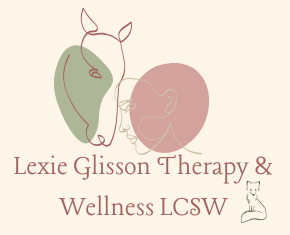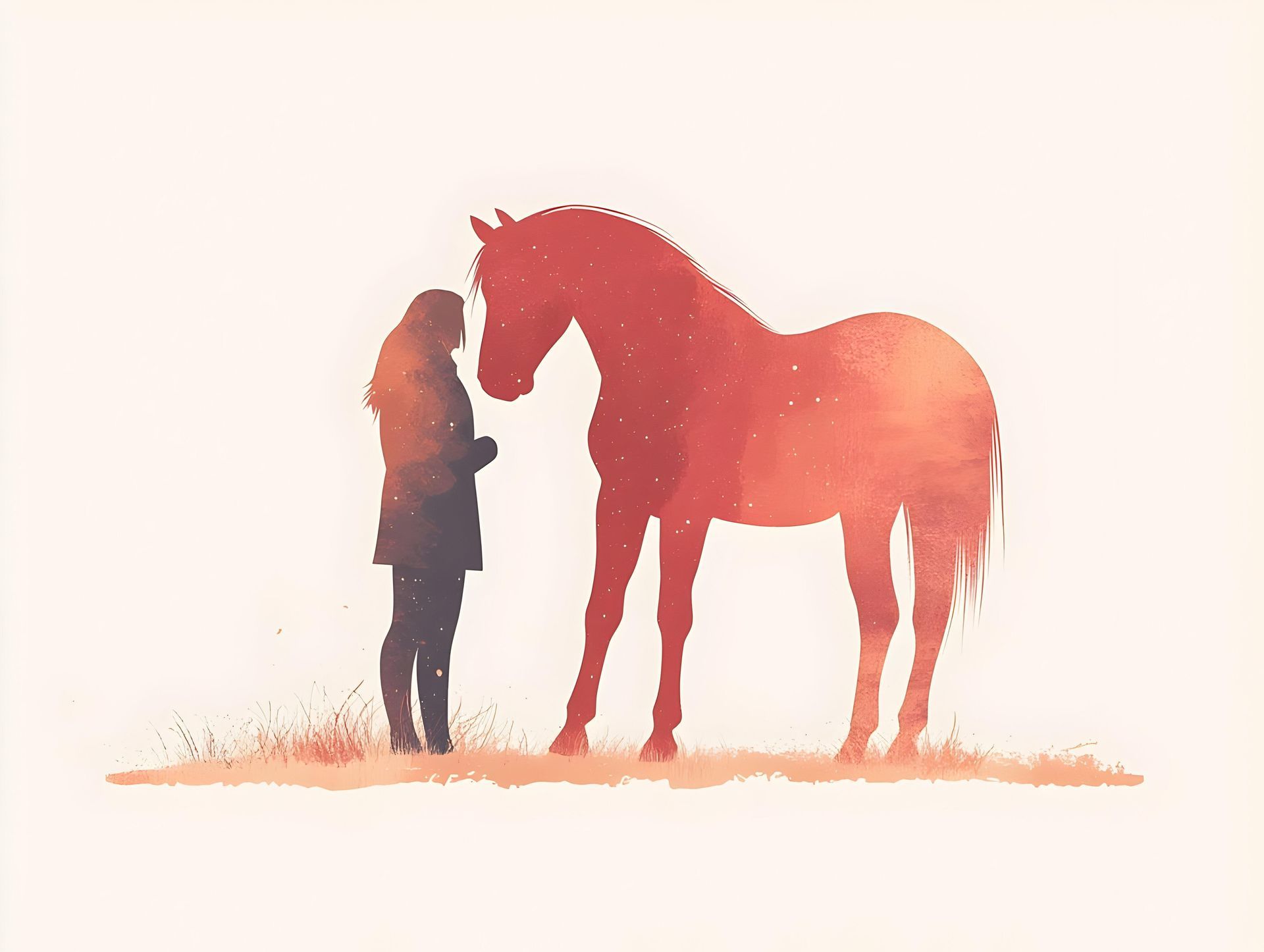At 19, she sits in my office convinced she's already failed at life. While her friends are thriving at prestigious universities, she's taking a gap year to work on her mental health. At 25, he's paralyzed by the belief that he should already own a house, be married, and have his career figured out like his older siblings did at his age. At 22, she's devastated that she changed her major twice and will graduate "late" while her classmates are already starting their careers.
This is the anxiety epidemic I see daily in my practice: young people tormented by the belief that they're behind in life, that they've missed some invisible deadline, that their timeline is wrong. But here's what I've learned from years of working with horses, nature, and the wisdom of natural cycles: there is no universal timeline for human growth, and the pressure to follow one is destroying our mental health.
Why Do We Feel Like We're Behind in Life?
The feeling of being "behind" isn't natural—it's manufactured by a culture obsessed with productivity, comparison, and linear progress. This anxiety has been amplified exponentially by social media, where we're constantly exposed to others' highlight reels and milestone moments.
Cultural Messages That Create Timeline Anxiety:
- Graduate high school at 18, college at 22, married by 25, kids by 30
- Linear career progression with constant upward movement
- Financial milestones tied to specific ages
- Social media showcasing everyone's "perfect" timing
- Family and societal expectations about "normal" life progression
The Reality: Human development has never been linear, and the idea of a standard timeline is a recent cultural invention that ignores the natural rhythms of growth, healing, and discovery.
What Causes Timeline Anxiety in Young Adults?
Social Media Comparison Culture
Instagram, TikTok, and LinkedIn create a constant stream of other people's achievements, milestones, and successes. We see engagement announcements, graduation photos, job promotions, and travel adventures—all carefully curated to look effortless and perfectly timed.
The Problem: We're comparing our behind-the-scenes reality with others' highlight reels,
forgetting that social media shows moments, not journeys.
Economic Pressure and Changing Realities
Previous generations could often afford houses, families, and financial stability at younger ages due to different economic conditions. Today's young adults face student debt, housing costs, and economic uncertainty that make traditional timelines unrealistic.
The Disconnect: We're holding ourselves to timelines that were created in different economic and social conditions.
Family and Cultural Expectations
Many families unconsciously pass down timeline expectations: "By your age, I was already..." These comparisons ignore the vastly different contexts, opportunities, and challenges each generation faces.
Perfectionism and Achievement Culture
We've been raised in an achievement-oriented culture that treats life like a race with clear milestones and finish lines. This creates the illusion that there's a "right" way to do life and a "wrong" way that means you're falling behind.
How Does Comparison Culture Affect Mental Health?
Chronic Anxiety and Stress
Constantly measuring yourself against others' timelines creates persistent anxiety. You're never present in your own life because you're always worried about where you "should" be.
Depression and Hopelessness
When you believe you're behind, every day feels like evidence of your failure. This can lead to depression, hopelessness, and the feeling that it's "too late" to change course.
Decision Paralysis
Timeline anxiety can make every decision feel monumentally important. Choosing a major, career, or relationship becomes overwhelming when you believe one wrong choice will put you further "behind."
Imposter Syndrome
Even when you achieve something, timeline anxiety makes you feel like it's "too late" or "not enough," preventing you from celebrating your accomplishments.
Relationship and Career Rushing
Timeline pressure can push people into relationships, careers, or life choices they're not ready for, simply because they feel they "should" be at a certain stage.
Why Is There No Universal Timeline for Life?
Human Development Isn't Linear
Psychological research shows that human development happens in spirals, not straight lines. We revisit themes, skills, and challenges throughout our lives, each time at a deeper level. There's no finish line for personal growth.
Everyone Has Different Starting Points
We all begin life with different advantages, challenges, resources, and circumstances. Comparing timelines ignores these fundamental differences in starting conditions.
Healing and Growth Take Time
Many people need time to heal from trauma, develop emotional regulation skills, or recover from mental health challenges. This healing work is essential foundation-building, not "falling behind."
Life Circumstances Vary Dramatically
Economic conditions, family situations, health challenges, and countless other factors affect everyone's path differently. What looks like being "behind" might actually be exactly the right pace for someone's circumstances.
What Do Horses Teach Us About Natural Timing?
In my equine-assisted therapy practice, horses have taught me profound lessons about natural timing and development:
Each Horse Develops at Their Own Pace
Some horses are ready for training at 3 years old; others need until 4 or 5. Rushing a horse's development can cause injury and behavioral problems. The same is true for humans.
Seasons of Growth and Rest
Horses naturally have seasons of activity and rest, growth and integration. They don't try to grow constantly or compare their development to other horses.
Authentic Readiness vs. Forced Timing
Horses show us the difference between authentic readiness and forced timing. When a horse is truly ready for something, it flows naturally. When we force timing, we create resistance and problems.
The Wisdom of Going Slow
In horse training, going slow often means going fast in the long run. Taking time to build proper foundation prevents problems later. The same principle applies to human development.
How Does Nature Challenge Timeline Thinking?
Natural Cycles Aren't Linear
Nature operates in cycles, not timelines. Seasons return, plants have periods of growth and dormancy, and ecosystems develop over decades or centuries. There's no rushing natural processes.
Different Species, Different Timelines
An oak tree takes decades to mature, while wildflowers bloom in a season. Both are perfect for their nature. Humans, too, have different natural timelines for different aspects of development.
The Wisdom of Fallow Periods
In agriculture, fields need fallow periods—times of rest that restore nutrients and prepare for future growth. Humans also need fallow periods, but our culture pathologizes rest and "unproductive" time.
Growth Happens Underground First
Before a plant shows visible growth, extensive root development happens underground. Similarly, much of human development—healing, learning, integrating—happens invisibly before external changes appear.
What Are the Signs You're Putting Too Much Pressure on Yourself?
You Can't Enjoy Present Moments
If you're constantly focused on where you "should" be, you miss the richness of where you actually are right now.
You Make Decisions Based on Timeline Pressure
Choosing careers, relationships, or life paths because you feel you're "running out of time" rather than because they feel right for you.
You Dismiss Your Accomplishments
Minimizing your achievements because they happened at the "wrong" time or in the "wrong" order.
You Feel Panic About Age
Experiencing anxiety attacks about birthdays or feeling like certain ages are deadlines for life achievements.
You Avoid Social Media
While digital detoxes can be healthy, avoiding social media specifically because it triggers comparison and timeline anxiety indicates the pressure you're putting on yourself.
How Can You Embrace Your Own Timeline?
Practice Timeline Neutrality
Instead of labeling experiences as "early," "late," or "on time," practice seeing them as simply part of your unique journey.
Focus on Internal Metrics
Rather than comparing external milestones, focus on internal growth: Are you becoming more authentic? More compassionate? More aligned with your values?
Celebrate Non-Linear Progress
Acknowledge that growth often looks like spirals, detours, and seemingly backward steps that are actually essential parts of the journey.
Honor Your Seasons
Recognize that you, like nature, have seasons of growth, rest, integration, and renewal. All seasons are necessary and valuable.
Reframe "Delays" as Preparation
What looks like being "behind" might actually be essential preparation for what's coming next in your life.
What If You're Actually Right on Time?
Consider this radical possibility: What if you're exactly where you need to be right now? What if your timeline is perfect for your unique path, your healing journey, your soul's development?
Your Challenges Are Preparing You
The struggles you're facing now might be developing exactly the skills, wisdom, and resilience you'll need for your future path.
Your Pace Is Perfect for You
Maybe you need more time to develop certain capacities, heal certain wounds, or explore certain possibilities before moving to the next phase.
Your Path Has Unique Gifts
Your non-linear journey might be developing perspectives, empathy, and wisdom that wouldn't be possible on a more conventional timeline.
How Do I Stop Comparing Myself to Others?
Limit Social Media Exposure
Curate your social media feeds to reduce comparison triggers. Unfollow accounts that consistently make you feel behind or inadequate.
Practice Gratitude for Your Journey
Regularly acknowledge what your unique path has taught you, the growth you've experienced, and the person you're becoming.
Connect with Your Values
Instead of external timelines, let your personal values guide your decisions and pace. Seek Support
Work with a therapist who understands timeline anxiety and can help you develop a healthier relationship with your own pace of development.
Spend Time in Nature
Regular time outdoors helps you reconnect with natural rhythms and cycles, reducing the pressure of artificial timelines.
What Should I Do If I Feel Behind in Life?
Question the Timeline
Ask yourself: Who created this timeline? Is it realistic for your circumstances? Does it align with your values and authentic desires?
Focus on Your Next Right Step
Instead of worrying about where you "should" be, focus on what feels like the next authentic step for you right now.
Celebrate Your Progress
Acknowledge how far you've come, even if it doesn't match external expectations or timelines.
Get Support
Consider therapy, coaching, or support groups that can help you develop a healthier relationship with your own pace of growth.
Practice Self-Compassion
Treat yourself with the same kindness you'd offer a good friend who was struggling with similar feelings.
The Gift of Your Unique Timeline
Your timeline isn't a mistake—it's a gift. The detours, delays, and different pace of your journey are developing qualities that wouldn't exist otherwise. Your struggles are creating empathy. Your delays are building patience. Your non-linear path is developing wisdom.
The world needs people who have taken time to heal, to grow, to discover who they really are beneath societal expectations. The world needs people who have learned that there's no rush to become human, no deadline for authenticity, no timeline for becoming yourself.
If you’re struggling with timeline anxiety or feeling weighed down by comparison, know that you don’t have to navigate this alone. As a Licensed Clinical Social Worker (LCSW) and Certified Equus Coach, I help young adults in Boulder, Golden, and Denver reconnect with their own authentic pace through equine-assisted therapy, nature-based therapy, and EMDR. Together, we can explore ways to find peace with your timing and embrace the path that’s uniquely yours.










